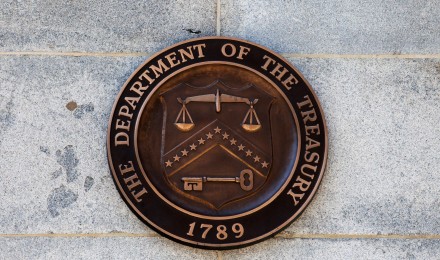As you tune into the latest news programs and open your newspaper, you might be tired of hearing about the fiscal cliff. Talk about the consequences of going off the fiscal cliff have dominated the news for several months, and as we near the end of 2012, many Americans brace for a major change in their take-home pay.
The fiscal cliff refers to a combination of tax increases and spending cuts scheduled to take effect at the end of the year – that’s if lawmakers fail to reach an agreement on how to avoid these changes. If neither political party offers a viable solution, the average household will see a jump in their income tax rate and many government programs will lose funding. The additional revenue from higher taxes and spending cuts can put the nation closer to reducing its federal deficit, but with taxpayers paying higher income taxes, economists fear a recession.
Here is a breakdown of what we can expect if the president and congress cannot reach an agreement and we go off the fiscal cliff.
- Many Americans will see a reduction in their take-home pay as income tax rates increase across the board. Individuals in the lowest tax bracket will see their rate jump from 10 percent to 15 percent, whereas individuals in the highest tax bracket will see a jump from 35 percent to 39.6 percent.
- The withholding rate on payroll taxes currently sits at 4.2 percent. If we go off the fiscal cliff, this rate increases to 6.2 percent.
- Taxes on dividends increase to 39.6 percent from the current 15 percent, and if you receive an inheritance, expect to pay a higher rate of 55 percent on estates worth more than $1 million. This a major jump from 35 percent on estates worth more than $5 million.
- Doctors who care for Medicare patients will see a 27 percent reduction in their payments.
- Expiration of the Alternative Minimum Tax will result in higher taxes for nearly 32 million middle class families with incomes greater than $75,000 a year. Created in 1969, the AMT is a flat tax that applies to the wealthy to ensure that individuals with higher incomes pay their fair share of taxes. However, this tax doesn’t account for inflation, in which some middle class families will pay higher taxes as if they were wealthy.
- The expiration of extended unemployment compensation will result in approximately 2 million Americans losing their benefits on January 1, 2013. Unemployment compensation will revert from 99 weeks to the original 27 weeks.
Approximately $109 billion in automatic spending cuts is schedule to take effect in 2013. About half of this amount will be cut from defense spending, and the other half from non-defense spending. Non-defense spending cuts will affect some educational programs, health programs and other government offices.
As you tune into the latest news programs and open your newspaper, you might be tired of hearing about the fiscal cliff. Talk about the consequences of going off the fiscal cliff have dominated the news for several months, and as we near the end of 2012, many Americans brace for a major change in their take-home pay.
The fiscal cliff refers to a combination of tax increases and spending cuts scheduled to take effect at the end of the year – that’s if lawmakers fail to reach an agreement on how to avoid these changes. If neither political party offers a viable solution, the average household will see a jump in their income tax rate and many government programs will lose funding. The additional revenue from higher taxes and spending cuts can put the nation closer to reducing its federal deficit, but with taxpayers paying higher income taxes, economists fear a recession.
Here is a breakdown of what we can expect if the president and congress cannot reach an agreement and we go off the fiscal cliff.
- Many Americans will see a reduction in their take-home pay as income tax rates increase across the board. Individuals in the lowest tax bracket will see their rate jump from 10 percent to 15 percent, whereas individuals in the highest tax bracket will see a jump from 35 percent to 39.6 percent.
- The withholding rate on payroll taxes currently sits at 4.2 percent. If we go off the fiscal cliff, this rate increases to 6.2 percent.
- Taxes on dividends increase to 39.6 percent from the current 15 percent, and if you receive an inheritance, expect to pay a higher rate of 55 percent on estates worth more than $1 million. This a major jump from 35 percent on estates worth more than $5 million.
- Doctors who care for Medicare patients will see a 27 percent reduction in their payments.
- Expiration of the Alternative Minimum Tax will result in higher taxes for nearly 32 million middle class families with incomes greater than $75,000 a year. Created in 1969, the AMT is a flat tax that applies to the wealthy to ensure that individuals with higher incomes pay their fair share of taxes. However, this tax doesn’t account for inflation, in which some middle class families will pay higher taxes as if they were wealthy.
- The expiration of extended unemployment compensation will result in approximately 2 million Americans losing their benefits on January 1, 2013. Unemployment compensation will revert from 99 weeks to the original 27 weeks.
Approximately $109 billion in automatic spending cuts is schedule to take effect in 2013. About half of this amount will be cut from defense spending, and the other half from non-defense spending. Non-defense spending cuts will affect some educational programs, health programs and other government offices.







